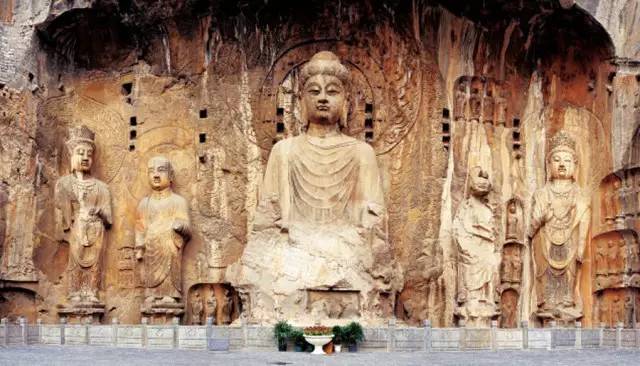How has Buddhism influenced Chinese culture?
By Householder Fo'en

Q : Buddhism has had a presence in China for well over a millennium. How has it influenced Chinese culture?
A: Though it was a foreign religion, Buddhism blended very well with the traditional culture of China.
The translation of Buddhism scriptures abetted the evolution of Chinese poetic language and style. For example, the poetry of Bai Juyi in the Tang Dynasty and Su Dongpo in the Song were inspired by Ch'an Buddhism's odes and new poetry. The translation and propagation of Buddhist texts also enriched the Chinese vocabulary, many terms and expressions of which are still commonly used today.
A Confucian school of idealist philosophy in the Song and Ming dynasties was deeply influenced by the Huayan and Ch'an traditions of Buddhism. In the late Qing Dynasty, studying Buddhism was common among Chinese scholars. Some pioneers of democratic thought in China, such as Tan Sitong, Kang Youwei, Liang Qichao and Zhang Taiyan, advocated Buddhist principles. These included compassion, equality, impermanence and selflessness, which resonated broadly among the intelligentsia of the time.
In addition, the magnificent temples, exquisite pagodas and beautiful Buddha statues are a key part of China's art treasures. Even in real life, many traditions and customs originated from Buddhism. For instance, the Chungyuan Festival (honoring the spirits of the deceased) and the Laba rice porridge festival derived directly from Buddhist commemorations.
From Buddhism for Beginners – Questions and Answers
Characteristics
- Recitation of Amitabha’s name, relying on his Fundamental Vow (the 18th)
- Rebirth of ordinary beings in the Pure Land’s Realm of Rewards
- Rebirth assured in the present lifetime
- Non-retrogression achieved in this lifetime

The 18th Vow of Amitabha Buddha
If, when I achieve Buddhahood, sentient beings of the ten directions who sincerely and joyfully entrust themselves to me, wish to be reborn in my land and recite my name, even ten times, should fail to be born there, may I not attain perfect enlightenment. Excepted are those who commit the five gravest transgressions or slander the correct Dharma.
Guiding Principles
Faith in, and acceptance of, Amitabha’s deliverance
Single-minded recitation of Amitabha’s name
Aspiration to rebirth in Amitabha’s Pure Land
Comprehensive deliverance of all sentient beings
